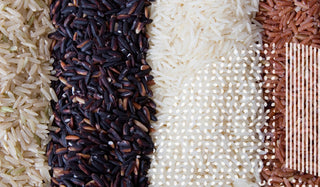Continuing our look into the components of Dineamic's Healthy Eating Plate, this week sports dietitian Karen Inge is talking grains. Digestive health is a big issue for all of us. We feel great when our gastrointestinal (gut) system is functioning perfectly. On the other hand we don’t like to talk about it when we are having ‘gut’ issues…we may say that we are feeling a bit bloated but that’s about it. Our digestive system needs some help to perform at its best and that help comes from dietary fibre, fluid, physical activity and stress management. Dietary fibre is not a single thing. There are three different types of dietary fibre - insoluble, which is the structural kind of fibre found in bran layers of grains, vegetable and fruit skins, soluble fibre, which is more like a sticky, gel like substance found in fruit (pectin), oats and barley (beta glucan) and legumes. And then, there is a third type of dietary fibre called resistant starch, which resists digestion and ferments in the large bowel producing an excellent environment for the good gut bacteria to survive and help to keep the bowel healthy. Grains, especially whole grains, are a very good source of fibre and provide our bodies with an important source of essential nutrients like B vitamins, including folate, vitamin E, minerals such as iron, magnesium, zinc, selenium. They also contain phytochemicals that act as powerful antioxidants vital for good health. It’s really important to eat a variety of grains to ensure that you are getting the right mix of insoluble, soluble fibres and resistant starch. Don’t forget that grains are also one of the best sources of energy giving carbohydrate. For a while there, some people became carb phobic, very concerned that carbs were making us fat. This view is slowly changing with the emergence again of the ancient grains like quinoa (a pseudo grain), freekeh (young green wheat), farro (first cultivated over 2000 years ago) , spelt, buckwheat (another pseudo grain), amaranth and red and black rice. These grains have superstar status and have given us permission to put nutritious carbs back on the menu. Many of these grains have a nutty flavour and a chewy texture while others lend themselves to be jazzed up with a wonderful array of flavoursome herbs and spices. That’s not to say there is anything wrong with the more refined white rice and pasta as they are still good sources of resistant starch. It’s just that the latest recommendations are that Australians can enjoy grains 3-4 times a day choosing at least half as wholegrains.
www.glnc.org.au Why don’t you try
Dineamic’s Minestrone and Quinoa soup or simply add some of these delicious ancient grains as side dishes with our Dineamic mains?
Article written by Karen Inge


